#anne shirley room
Explore tagged Tumblr posts
Text






Anne Shirley was right about everything, especially Octobers 🍁✨❤️🫶🍂💫
all photos are mine
#annes room#october#anne shirley cuthbert#anne of green gables#anne with an e#fall#autumn#autumn aesthetic#anne shirley
12 notes
·
View notes
Text
have a shifting question? Ask me please I’m bored
#shiftblr#reality shifting#shifting motivation#shifting antis dni#reality shift#desired reality#shifting community#shifting blog#void state#current reality#anne shirley cuthbert#art#architecture#animals#nail art#quantum jumping#quoteoftheday#queer nsft#video#words#cats#waiting room#fred weasly x reader#mike wheeler x reader#high value woman#black shifters#reality shifter#scripting#peter parker smut#self care
8 notes
·
View notes
Text
So here are five, amazing classic lit novels that are not written by straight, white, American/English cis men.
1. Giovanni’s Room - James Baldwin
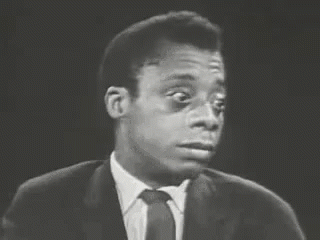
Honestly, any of Baldwin’s books are amazing and could have a place on this list. This is my favourite, because I find Giovanni such a relatable character. Baldwin’s main goal in a lot of his fiction books is to separate black characters from the tragedy of being black, Giovanni’s Room focuses on two white gay men and it both does this from a gay perspective and doesn’t. On the one hand, a lot of the tragedy regarding the romantic story has happened within heterosexual relationships, and when Giovanni’s is executed (it’s established from the beginning)… it’s clearly because he’s a poor young man who dared to stand up against the rich older man who at best took advantage of him. In some ways, this is more to do with abuse of power from rich old men.
2. Maurice - E. M. Forster

What if I told you… there was a classic queer novel… with a happy ending? And a working class queer character. And isn’t just about rich gay public school boys who keep everything behind closed doors. It took me a little while to get into it because I thought it was going to be just another book about the latter, but it’s not I promise you. It wasn’t published until after E.M. Forster died, which makes sense since it was written fairly close to the Oscar Wilde trial and prior to homosexuality being made legal in the U.K.. Also, It was inspired by Edward Carpenter, socialist, and early gay rights activist.
3. The Lottery - Shirley Jackson
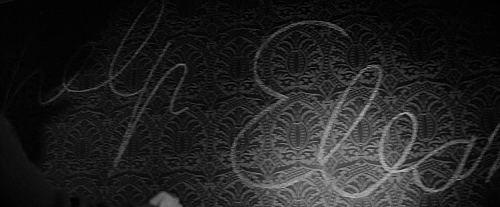
The gif is from The Haunting of Hill House but Nell’s story is extremely fitting to this short story. Thinking about it shakes me to my god damn core. It’s a small creepy village that has a horrifying ritual, no one does horror quite like Shirley Jackson. Similar to the Haunting of Hill House I think a lot of the disturbing nature of it comes from the people so unwilling to listen. The Lottery itself refers to the annual stoning of a person which is a tradition among the villages to ensure the prosperity of the village for another re crops and such. There’s a bit in it where a couple of old men are talking about how other villages have stopped doing the Lottery and how ludicrous that is, with added “young people these days”. This story really gets into the psychology of why people so adamantly stick to tradition and don’t challenge authority. It’s so great.
4. The Dubliners - James Joyce

I actually think this is the most underrated Joyce book, and whilst I’ve heard some people have read it at school I’m extremely jealous. I always hear about Ulysses when this one is significantly easier to read, and I love how each story is about a new every day, normal person living in Dublin. It does not focus on separatism of religion in Ireland (not entirely anyway), and avoids politics almost entirely (excluding when a woman calls a journalist a west Brit). The idea was that like Baldwin Joyce wanted to depict Irish people being normal, and not to he defined by their tragedy, religion, and politics.
5. The Tenant of Wildfel Hall - Anne Brontë

This is the most underrated Brontë sisters’ novel. It’s absolutely iconic. The inspiration for this novel comes from a story that Anne’s father told. He was a priest who was hearing a confession from a married woman who was being horrifically abused by her husband. She didn’t want to leave him because that would he a sin, Anne’s father told her to do it and that God would understand. When you consider how divorce was seen in the 1800s especially in religious circles… that is pretty astounding. That is essentially the main theme of the book without going into too many spoilers, it’s also about how “odd” Helen is considered because she actually shows love and care to her son (which involves a spirited debate about how all children deserve affection and closeness from their mother.)
#bookblr#writeblr#classic literature#James Baldwin#anne brontë#e m forster#James Joyce#Shirley Jackson#giovanni’s room#tenant of Wildfell hall#the lottery#Maurice#the dubliners#envi recs
137 notes
·
View notes
Text
they try, honestly they do, but the doctor isn't a stationary creature and never has been, especially not when they know there's something they could help with. which is to say, it takes a week of soft quiet life before he starts begging kate for a job. kate in turn withstands three weeks of the doctor's incessant begging and big puppy dog eyes while donna noble stands right behind him and mouths don't you fucking dare before she makes a counteroffer: he can work in a lab (the 'very far away from active duty' is implied) as long as he meets with unit's therapist.
and he refuses, of course, loudly and profusely, right up until donna very gently but very firmly tells him that it really could help, actually.
so. therapy. the doctor assumes it won't do anything. the unit therapist is no nonsense and unflinching and very very bright, and twenty minutes later the doctor sits outside the room hyperventilating while kate finishes paperwork and kindly doesn't mention the way he's all but curled into her.
the second session ends much like the first, and the third, and then the fourth he walks out with dry eyes and a tremulous smile. the fifth, kate calls donna and she takes him home and they drink hot chocolate and he doesn't start talking again until the next day. it takes him seven sessions to be able to stay in the room for the full hour; kate pats him on the back and then finally allows him to build a shield for her office as a reward. she sits outside the therapist's office every time he has a session, even though she has to have better things to do. they don't talk about it.
unit only has files on things the doctor's done on earth, and even then, only sometimes, which means that when the doctor talks about some things he just. edits, a little. talks about two weeks in a confession dial and a month in prison, because maybe then he doesn't have to think about the enormity of it all. and every single time he does this, the therapist looks at him and very kindly calls bullshit. it's weird, being known. it's different with donna. he is donna and donna is him, in ways they will probably never talk about. but he sits in that cluttered little office for an hour a week (sometimes two or three times, if he's doing particularly badly) and he feels seen.
after four months, there are memories he can touch without flinching, and people he can talk about without crying. he starts spending a couple of hours just sitting in the vortex, not because he's hiding or running but just because he likes the way it feels against his skin. he cooks dinner every other night and washes up when he doesn't. he takes out the bin every week even though it's rose's job, because he loves her. and he can say that now, and he doesn't think about her short lifespan or about all the other people they've loved and lost. he can say that and just mean it.
part of his contract is an agreement to never offer a trip to a member of unit unless it's actual life or death (the small chemical leak in the lab doesn't count; he takes shirley to new mars anyway) but he finds himself toying with the idea of asking for a session in the tardis. just once, just to see. the therapist looks at him and sees him and it is monstrous and they keep looking anyway and now the doctor can sit through a family dinner without wanting to tear his skin off and he doesn't know any other way to say thank you.
it's funny, almost, how quickly he grows attached to this person who picks through his hurts and rifles through his traumas and holds direct eye contact while doing so. the doctor talks about their deaths and their crimes and their cowardice and the therapist nods and asks him how he feels and it's. it's terrifying. it's beautiful. it's the worst thing he's ever ever been through, and the best. he feels ripped apart and put back together in a way that few people have ever been able to— huh.
after his sixty eighth session (he's unable to not keep count) the doctor walks outside to where kate is annotating a schematic and says, thoughtfully, they're the master in disguise, aren't they. and kate says oh 100% and please don't let them know that you know because they will definitely go to the second stage of whatever long con they've been hatching and they're too good at this for us to let them go
#doctor who#doctor who spoilers#does this count as fic. i mean it's long enough ain't it#the doctor#fourteen#you can decide which one it is exactly tbh#my fanfic
5K notes
·
View notes
Text
100 Fiction Books to Read Before You Die
The Namesake by Jhumpa Lahiri
The Book of Margery Kempe by Margery Kempe
The Bluest Eye by Toni Morrison
A Small Place by Jamaica Kincaid
The God of Small Things by Arundhati Roy
Frankenstein by Mary Shelley
We Need to Talk About Kevin by Lionel Shriver
The Prime of Miss Jean Brodie by Muriel Sparks
The Girl by Meridel Le Sueur
The Kitchen God's Wife by Amy Tan
The Secret History by Donna Tartt
The Color Purple by Alice Walker
The Poisonwood Bible by Barbara Kingsolver
Veronica by Mary Gaitskill
Americanah by Chimamanda Ngozi Adichie
Alias Grace by Margaret Atwood
Jane Eyre by Charlotte Bronte
The Bell Jar by Sylvia Plath
Mrs. Dalloway by Virginia Woolf
Kindred by Octavia Butler
Middlemarch by George Eliot
Pride and Prejudice by Jane Austen
To Kill a Mockingbird by Harper Lee
Uncle Tom's Cabin by Harriet Beecher Stowe
Their Eyes Were Watching God by Zora Neale Hurston
Passing by Nella Larson
The Left Hand of Darkness by Ursula K. Le Guin
Brideshead Revisited by Evelyn Waugh
Death Comes for the Archbishop by Willa Cather
Play it as it Lays by Joan Didion
The House of Spirits by Isabel Allende
Wuthering Heights Emily Bronte
Little Women by Louisa May Alcott
White Teeth by Zadie Smith
The Power by Naomi Alderman
The Street by Ann Petry
The Age of Innocence by Edith Wharton
Mary Barton by Elizabeth Gaskill
An American Marriage by Tayari Jones
Small Island by Andrea Levy
The Idiot by Elif Batuman
The Outsiders by S. E. Hinton
The Price of Salt/Carol by Patricia Highsmith
Room by Emma Donoghue
The Sea, The Sea by Iris Murdoch
Garden of Earthly Delights by Joyce Carol Oates
Wide Sargasso Sea by Jean Rhys
Wise Blood by Flannery O Conner
Gone Girl by Gillian Flynn
Picnic at Hanging Rock by Joan Lindsey
Rebecca by Daphne du Maurier
Salt to the Sea by Ruta Sepetys
Atlas Shrugged by Ayn Rand
The Awakening by Kate Chopin
Fried Green Tomatoes at the Whistle Stop Cafe by Fannie Flagg
The House on Mango Street by Sandra Cisneros
The Well of Loneliness by Radclyffe Hall
House of Incest by Anaïs Nin
The Mandarins by Simone de Beauvoir
The Lottery by Shirley Jackson
A Little Life by Hanya Yanagihara
Corregidora by Gayl Jones
Whose Names are Unknown by Sanora Babb
Half of a Yellow Sun by Chimamanda Ngozi Adichie
The Handmaid's Tale by Margaret Atwood
See Now Then by Jamaica Kincaid
The Lowland by Jhumpa Lahiri
Beloved by Toni Morrison
The Joy Luck Club by Amy Tan
The Goldfinch by Donna Tartt
Demon Copperhead by Barbara Kingsolver
The Ministry of Utmost Happiness by Arundhati Roy
To the Lighthouse by Virginia Woolf
My Antonia by Willa Cather
Democracy by Joan Didion
Black Water by Joyce Carol Oates
The Violent Bear it Away by Flannery O Connor
Sharp Objects by Gillian Flynn
My Cousin Rachel by Daphne du Maurier
The Fountainhead by Ayn Rand
I Must Betray You be Ruta Sepetys
The Haunting of Hill House by Shirley Jackson
The Mare by Mary Gaitskill
City of Beasts by Isabel Allende
Fledgling by Octavia Butler
A Wizard of Earthsea by Ursula Le Guin
The First Bad Man by Miranda July
Sense and Sensibility by Jane Austen
Moses, Man of the Mountain by Zora Neale Hurston
Disobedience by Naomi Alderman
Quicksand by Nella Larsen
The Narrows by Ann Petry
The Blood of Others by Simone de Beauvoir
Under the Sea by Rachel Carson
Go Set a Watchman by Harper Lee
Under the Net by Iris Murdoch
The Birdcatcher by Gayl Jones
Desert of the Heart by Jane Rule
In the Time of the Butterflies by Julia Alvarez
The Memory Police by Yōko Ogawa
@gaydalf @kishipurrun @unsentimentaltranslator @algolagniaa @stariduks @hippodamoi
381 notes
·
View notes
Text

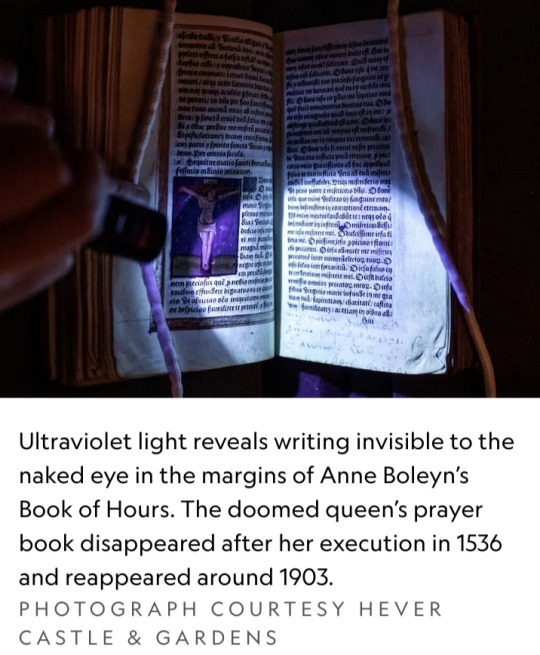
By Leslie Patrick
1 August 2023
Anne Boleyn (c. 1501 or 1507 – 19 May 1536), King Henry VIII's second queen, is often portrayed as a seductress and ultimately the woman responsible for changing the face of religion in England.
In reality, she was a fiercely intelligent and pious woman dedicated to education and religious reform.
But after her arrest and execution on false charges of adultery and incest in May 1536, Henry VIII was determined to forget her memory.
Her royal emblems were removed from palace walls, her sparkling jewels tucked away in dark coffers, and her precious books disappeared from the pages of time.
One of Boleyn’s books that has reappeared is the Book of Hours, a stunning prayer book, printed around 1527 with devotional texts designed to be read throughout the day, features hand-painted woodcuts — as well as a rare example of the queen’s own writing.
In the margins of one of the beautifully decorated pages, she penned a rhyming couplet followed by her signature:
“Remember me when you do pray, that hope doth lead from day to day, Anne Boleyn.”
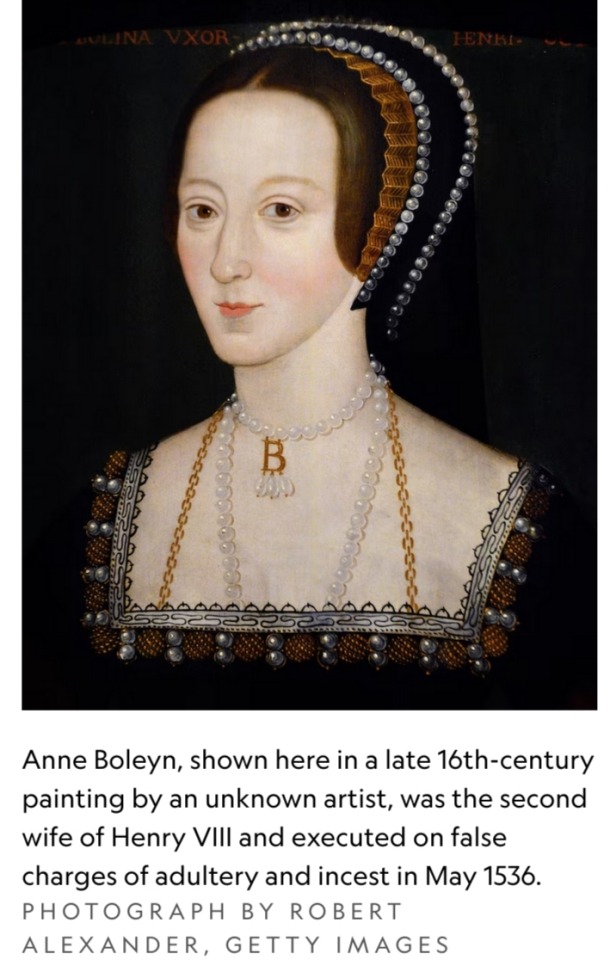
The book vanished with Boleyn’s execution in 1536, then resurfaced around 1903 when it was acquired by the American millionaire William Waldorf Astor (31 March 1848 – 18 October 1919) after he purchased Hever Castle, Anne Boleyn’s childhood home in the English countryside.
The hiding place of the disgraced queen’s devotional tome had been a mystery for centuries, until recent research by a university student uncovered hidden signatures that helped trace its path through history.
The discovery
The book’s whereabouts in the 367 years between Boleyn’s death and its reemergence remained puzzling until 2020 when Kate McCaffrey, then a graduate student at the University of Kent working on her master’s thesis about Anne Boleyn’s Book of Hours, found something unexpected in the margins of the book.
“I noticed what appeared to be smudges to the naked eye,” recalls McCaffrey, assistant curator at Hever Castle since 2021.
Intrigued, she borrowed an industrial-strength ultraviolet light and set it up in the darkest room of Hever Castle.
Ultraviolet light is often used to examine historical documents because ink absorbs the ultraviolet wavelength, causing it to appear darker against the page when exposed.
“The words just came through. It was incredible to see them underneath the light, they were completely illuminated,” the curator recalls.
McCaffrey’s theory is that the words were erased during the late Victorian era when it was popular to cleanse marginalia from books or manuscripts.
But thanks to her extraordinary detective work, these erased words turned out to be the key that unlocked the tale of the book’s secret journey from certain destruction at the royal court to safety in the hands of a dedicated group of Boleyn’s supporters.
The guardians
Indeed, various pages throughout the text reveal the names and notations of a string of Kentish women — Elizabeth Hill, Elizabeth Shirley, Mary Cheke, Philippa Gage, and Mary West — who banded together to safeguard Anne's precious book and keep her memory alive.
While it’s unclear how the book was initially passed to these women, Anne Boleyn expert Natalie Grueninger suggests it was gifted by Anne to a woman named Elizabeth Hill.
Elizabeth grew up near Hever Castle, and her husband, Richard Hill, was sergeant of the King’s Cellar at Henry VIII’s court.
There are records of the Hill’s playing cards with the king, and there may have been a friendship between Elizabeth and the queen that prompted Boleyn to pass her prayer book on before her execution.
“This extended Kentish family kept the book safe following Anne’s demise, which was an incredibly brave and bold act considering it could have been considered treasonous,” says Grueninger, podcaster and author of the book The Final Year of Anne Boleyn.
Anne’s Book of Hours was passed between mothers, daughters, sisters, and nieces until the late sixteenth century, when the last name makes its appearance in its margins.
“This story is an example of the women in the family prioritizing loyalty, friendship, fidelity, and a personal connection to Anne,” says McCaffrey.
“The fact that the women have kept it safe is a really beautiful story of solidarity, community, and bravery.”
The book, currently on display at Hever Castle, is a touchstone of the enigma that was Anne Boleyn.
Castle historian and assistant curator Owen Emmerson points out that the book contains Anne’s DNA on the pages from where she touched and kissed it during her daily devotions.
“This was a really beloved possession of hers,” says Emmerson.
“Because of what happened to Anne Boleyn, we don’t have a vast amount of information in Anne’s own words. But the physical remnants of her use of the book, and the construction of that beautiful little couplet, have her identity in them.”
While Anne’s Book of Hours has finally found its way home, the research into this intriguing historical mystery is not yet over.
McCaffrey continues to chart the book’s provenance through the centuries to find out where it was hiding all this time.
The discovery of the inscriptions illuminates the book’s furtive journey, providing us with a glimpse into the controversy, loyalty, and fascination that Anne Boleyn has engendered for the past 500 years.

#Anne Boleyn#King Henry VIII#Book of Hours#William Waldorf Astor#Hever Castle#Kate McCaffrey#University of Kent#ultraviolet light#Natalie Grueninger#Owen Emmerson#Elizabeth Hill#Elizabeth Shirley#Mary Cheke#Philippa Gage#Mary West#The Tudors#House of Tudor#British Royal Family
565 notes
·
View notes
Text
STWG daily drabble - 19/09/23
Prompt: we’re not family
****
The ICU is at capacity. An earthquake, they’re saying. It’s been a week and they’re still sticking to that bullshit story.
Wayne’s not an idiot, and neither are these doctors. There are Feds here talking about dog bites and it’s written all over their faces, yeah pal, we don’t believe it either.
A nurse brought him a book a couple of days ago. “To keep your mind off things.” It’s hard to read when he’s listening for the whoosh clicks of the ventilator, the alarms, beeps and bells of machinery, all plugged in to his nephew, and knowing that these sounds mean Eddie’s alive. He doesn’t want to keep his mind off that.
Wayne hears a commotion in the hallway and he’s about to ignore it when he realises he recognises the voice.
He steps out of the room and is stunned to see his little brother arguing with two nurses. It’s like a slap in the face. Wayne didn’t even know he was out of jail.
“Christ, Wayne, will you tell these people we’re family?”
Wayne stares at him. At Albert Edward Munson, the baby brother who he wished for for so long. Who finally showed up a couple of months after Wayne’s tenth birthday and he’d thought it was the best possible birthday present anyone could have got him.
He used to take Al to school for his Ma when she was working, his small hand tucked safely in Wayne’s as they walked. That yardstick of growth, hand against hand, laughter and giggles as Al caught up to him, bigger and bigger each year.
He showed him how to slick his curls back with Sweet Georgia Brown before his first date. Told him he was still proud of him when he failed senior year.
Hugged him tight when Al was drafted. Hugged him tighter when he came home.
He comforted him when he got Shirley-Anne pregnant, told him it would be okay. Gave him money, helped them get married.
Cried with him when Eddie was born. Cried with him when Shirley-Ann died.
Bailed him out of jail when he went on a bender. Cleaned up the bottles and cans in the house so that Eddie wouldn’t cut himself on them.
Argued with him when he saw the bruises on Eddie’s arms. Hit him when he saw the bruise on Eddie’s cheek.
Disowned him when he threw Eddie out.
He stares at his baby brother, and it fucking hurts because he sees so much of Eddie standing there. The big brown eyes, the dark curls. It fucking hurts because he loved this kid with all his heart and he did everything he could, he did, to steer him right, to keep him on a good path. All for nothing.
Wayne swallows thick and wet. “We ain’t family.”
“The fuck we’re not!” shouts Al. “You can’t keep me from my boy!”
Wayne is a patient man, but that there is his breaking point. He storms towards Al, grabs his shirt in one hand, points right in his face with the other.
“That’s where you’re wrong,” he spits out, venom and anger and frustration, a pressure cooker twenty years in the making finally exploding. “On two counts. I will keep you away from him, and he ain’t your fucking boy no more!” Wayne shoves him away. “You lost the right to call him your boy the moment you beat the shit out of him.”
He catches sight of one of the Feds and well fuck let’s make them work for their money, he thinks as he waves him over.
“This man’s bothering the nurses.” He barely finishes the sentence before Al is being dragged out of the ICU, hollering and shouting the whole way.
The nurses are kind, they ask if he’s okay and he thanks them and apologises. For what happened, not for Al’s behaviour. Because he stopped being responsible for Al Munson a long time ago.
304 notes
·
View notes
Text
Montgomery's female characters that were not-exactly-pretty-but-fascinating-and-charming:
Anne Shirley:
"Public opinion never agreed on Anne’s looks. People who had heard her called handsome met her and were disappointed. People who had heard her called plain saw her and wondered where other people’s eyes were. [...] While Anne was not beautiful in any strictly defined sense of the word she possessed a certain evasive charm and distinction of appearance that left beholders with a pleasurable sense of satisfaction in that softly rounded girlhood of hers, with all its strongly felt potentialities." (Anne of Avonlea).
Emily Starr:
"A slender, virginal young thing. Hair like black silk. Purplish-grey eyes, with violet shadows under them [...]; scarlet lips with a Murray-like crease at the corners; ears with Puckish, slightly pointed tips. [...] An exquisite line of chin and neck; a smile with a trick in it; such a slow-blossoming thing with a sudden radiance of fulfilment. And ankles that scandalous old Aunt Nancy Priest of Priest Pond commended. [...] With all this—pretty? I cannot tell you. Emily was never mentioned when Blair Water beauties were being tabulated. But no one who looked upon her face ever forgot it." (Emily's Quest).
Valancy Stirling:
"Valancy was still leaning forward. Her little hat with its crimson rose was tilted down over one eye. Olive stared. In the moonlight Valancy’s eyes—Valancy’s smile—what had happened to Valancy! She looked—not pretty—Doss couldn’t be pretty—but provocative, fascinating—yes, abominably so." (The Blue Castle).
Pat Gardiner:
"Somehow people seldom wondered whether Pat Gardiner was pretty or not...she was so vital, so wholesome, so joyous, that nothing else mattered. Yet her dark-brown hair was wavy and lustrous, her golden-brown eyes held challenging lights and the corners of her mouth had such a jolly quirk. She was looking her best to-night with a little flush of excitement staining her round, creamy cheeks. She felt as if she were slipping back into the past." (Mistress Pat).
Jane Stuart:
"Your granddaughter is going to be a very handsome girl," a lady told grandmother. "She doesn't resemble her lovely mother, of course, but there is something very striking about her face."
"Handsome is as handsome does," said grandmother in a tone which implied that, judged by that standard, Jane hadn't the remotest chance of good looks." (Jane of Lantern Hill).
Thora Dark:
"Whenever she came into a room people felt happier. She lighted life like a friendly beaming candle. She had a face that was charming without being in the least beautiful. A fascinating square face with a wide space between her blue almond-shaped eyes and a sweet, crooked mouth. She was very nicely dressed. Her peculiarly dark auburn hair was parted on her forehead and coronetted on her crown. There were milky pearl drops in her ears." (Tangled Web).
Marigold Lesley ne�� Richards (Marigold's Aunt, a wife of Uncle Klondike, a female doctor):
"She had a little, square, wide-lipped, straight-browed face like a boy's. Not pretty but haunting. Wavy brown hair with one teasing, unruly little curl that would fall down on her forehead, giving her a youthful look in spite of her thirty-five years. What a dear face! So wide at the cheekbones—so deep grey-eyed. With such a lovely, smiling, generous mouth." (Magic for Marigold).
#lm montgomery#anne of green gables#emily of new moon#tangled web book club#aogg#tangled web#the blue castle#blue castle book club
97 notes
·
View notes
Text
IWTV Season 2 Sources & References
(The 1st 4 were cited by the Writer’s Room)
The Ethnic Avante-Garde: Minority Cultures and World Revolution by Steven S. Lee
Paris Journal 1944-1955 by Janet Flanner (Genet)
The Vampire: A Casebook by Alan Dundes
Anne Rice’s Vampire Chronicles: An Alphabettery
The Fly cited by Jacob Anderson
King Lear by Shakespeare cited by Rolin Jones
Melmoth the Wanderer by Charles Maturin
Sebastien Melmoth by Oscar Wilde
Amadeus (1984)
The Lost Boys (1987)
Gaslight (1944)
Batman
Casablanca (1942)
Now, Voyager (1942)
The Third Man (1949) cited by Levan Akin
An American in Paris by George Gershwin (1928) cited by Daniel Hart
Moulin Rouge (2001)
The Phantom of the Opera
Les Vampires (1915)
Dracula (1931) credit to @vampchronicles_ on twt
Le Triomphe de L’amour by Pierre de Marivaux
Giovanni’s Room by James Baldwin cited by Jacob Anderson
Existentialism is a Humanism by Jean Paul Sartre
Les Liaisons Dangereuses by Pierre Choderlos de Laclos
Romeo and Juliet by William Shakespeare
How to Win Friends and Influence People by Dale Carnegie
Hamlet by William Shakespeare
Vampire’s Kiss (1988) credit to @talesfromthecrypts
Les Morts ont tous le Meme Peau by Boris Vian credit to @greedandenby
The Most Dangerous Game by Richard Connell
Waiting for Godot by Samuel Barclay Beckett credit to @rorscachisgay on twt
An Enemy of the People by Ibsen
Anna Karenina by Leo Tolstoy
Vie de Voltaire by Marquis Condorcet
Simone de Beauvoir: A Critical Introduction by Edward Fullbrook and Kate Fullbrook credit to @iwtvfanevents
Nightwood by Djuna Barnes credit to @iwtvfanevents
Beloved by Toni Morrison
Artists and Salons Referenced:
R-26
Palma Vecchio
Andre Fougeron
Elsa Triollet
Fred Stein
Lisette Model
Gordon Parks
Miguel Barcelo
Taxidermied Javelina by Chris Roberts-Antieau
Ai WeiWei (wallpaper)
David Hockney (Lemons)
Wols
The Kiss of Judas by Jakob Smits
Salome by Louis Icart
Ophelia by John Everett Millais
Shelter by Peter Macon
The Kiss by Edvard Munch
The Vampire or Love and Pain by Edvard Munch credit @iwtvasart
Ruiter on Horse by Reiger Stolk credit @ iwtvasart
Portrait of Frank Burty Haviland by Modigliani credit @iwtvasart
Self-Seers II (Death and Man) by Egon Schiele credit to @90sgreggaraki
The Sleep of Reason Produces Monsters by Goya
Movie & Play Posters on set (in chronological order by year):
Tarzan and his Mate (1934)
Avec le Sourire (1936)
Les Deux Gosses (1936)
Le Jour Se Leve (1939) about a man who commits murder as a result of a love triangle and locks himself in his apartment recounting the details as the police attempt to arrest him. Credit to @laisofhyccara
Nuit de Décembre (1940)
Mademoiselle Swing (1942) about a girl who follows a troupe of swing musicians to Paris.
Les Enfents du Paradis (1945) about a woman with many suitors including an actor and an aristocrat.
Fantomas (1946) about a sadistic criminal mastermind. This version includes a hideout in the catacombs where he traps people.
Quai des Orfevres (1947) watch here
Monsieur Vincent (1947)
Le Cafe du Cadran (1947) about a wife’s affair with a violinist.
La Kermesse Rouge (1947) film about a jealous artist who locks up his younger wife and a fire breaks out while she’s trapped.
Morts Sans Sepulture by Jean-Paul Sartre (play) also published in English translations as “The Victors” or “Men Without Shadows” about resistance fighters captured by Vichy soldiers struggling not to give up information.
Mon Faust by Paul Valery (play)
Musical Influences:: @greedandenby collected all music used in Season 2 here.
Henry Cowell
Meredith Monk
Howling’ Wolf
Shirley Temple
Jason Lindner Big Band
The Teeth
Carlos Salzedo
Alice Coltrane
Thelonius Monk
David Lang
Caroline Shaw
Gadfly by Shostakovich (for Raglan James)
musical career of Martha Argerich
Season 1 here (these lists are updated regularly)
Season 3 here
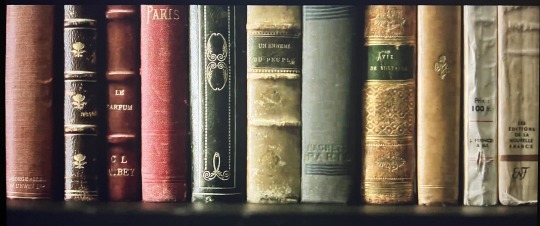
#iwtv#season 2#given that the posters are starting to come out of Prague I decided to start compiling sources and references in one place#Set design#production design#iwtv art
275 notes
·
View notes
Text
Mori Book Recommendations, by littlemoriflower

Hello, dear-friends!
It's been a while since I have done one of these "longer" posts. I have been very absent, not only from this blog, but from the internet at large. School has been killing me lately, and I let the tiredness get the best of me more often than not.
However, I'd like to state that I continue to love AND wear mori everyday. not that anyone was accusing me of not doing it lmao I've simply been lacking the motivation to make more posts, but I hope that that's about to change! I won't be posting every day, but I'll try to come by and be more active in the community where I found so much happiness and lovely people in!
On another note, I have noticed more people joining the community! ^^ That is so exciting!!! I welcome all of you to our humble corner of the internet, and I hope you find peace and happiness in mori kei, as much as we mori folk do! (✿◡‿◡)
Now, to the post!

The Secret Garden, by Frances Hodgson Burnett

Synopsis:
Mary Lennox, a spoiled, ill-tempered, and unhealthy child, comes to live with her reclusive uncle in Misselthwaite Manor on England’s Yorkshire moors after the death of her parents. There she meets a hearty housekeeper and her spirited brother, a dour gardener, a cheerful robin, and her wilful, hysterical, and sickly cousin, Master Colin, whose wails she hears echoing through the house at night.
With the help of the robin, Mary finds the door to a secret garden, neglected and hidden for years. When she decides to restore the garden in secret, the story becomes a charming journey into the places of the heart, where faith restores health, flowers refresh the spirit, and the magic of the garden, coming to life anew, brings health to Colin and happiness to Mary.
Goodreads

Anne Of Green Gables, by L. M. Montgomery
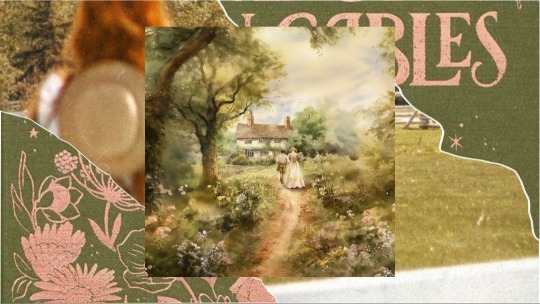
Synopsis:
This heartwarming story has beckoned generations of readers into the special world of Green Gables, an old-fashioned farm outside a town called Avonlea. Anne Shirley, an eleven-year-old orphan, has arrived in this verdant corner of Prince Edward Island only to discover that the Cuthberts—elderly Matthew and his stern sister, Marilla—want to adopt a boy, not a feisty redheaded girl. But before they can send her back, Anne—who simply must have more scope for her imagination and a real home—wins them over completely. A much-loved classic that explores all the vulnerability, expectations, and dreams of a child growing up, Anne of Green Gables is also a wonderful portrait of a time, a place, a family… and, most of all, love.
Goodreads

Howl's Moving Castle, by Diana Wynne Jones

Synopsis:
Sophie has the great misfortune of being the eldest of three daughters, destined to fail miserably should she ever leave home to seek her fate. But when she unwittingly attracts the ire of the Witch of the Waste, Sophie finds herself under a horrid spell that transforms her into an old lady. Her only chance at breaking it lies in the ever-moving castle in the hills: the Wizard Howl's castle. To untangle the enchantment, Sophie must handle the heartless Howl, strike a bargain with a fire demon, and meet the Witch of the Waste head-on. Along the way, she discovers that there's far more to Howl—and herself—than first meets the eye.
Goodreads

Inkheart, by Cornelia Funke
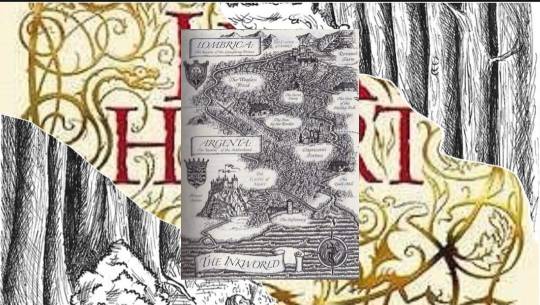
Synopsis:
One cruel night, Meggie's father reads aloud from a book called INKHEART-- and an evil ruler escapes the boundaries of fiction and lands in their living room. Suddenly, Meggie is smack in the middle of the kind of adventure she has only read about in books. Meggie must learn to harness the magic that has conjured this nightmare. For only she can change the course of the story that has changed her life forever.
Goodreads

By Ash, Oak And Thorn, by Melissa Harrison
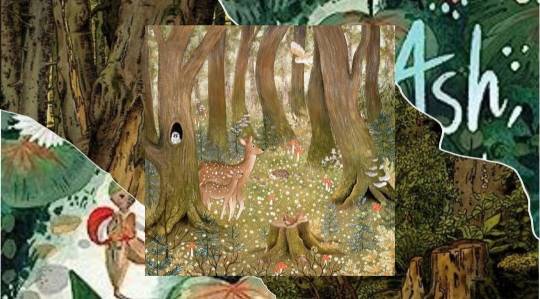
Synopsis:
Three tiny, ancient beings - Moss, Burnet and Cumulus, once revered as Guardians of the Wild World - wake from winter hibernation in their beloved ash tree home. When it is destroyed, they set off on an adventure to find more of their kind, a journey that takes them first into the deep countryside and then the heart of a city. Helped along the way by birds and animals, the trio search for a way to survive and thrive in a precious yet disappearing world...
Goodreads

Alice In Wonderland, by Lewis Carrol
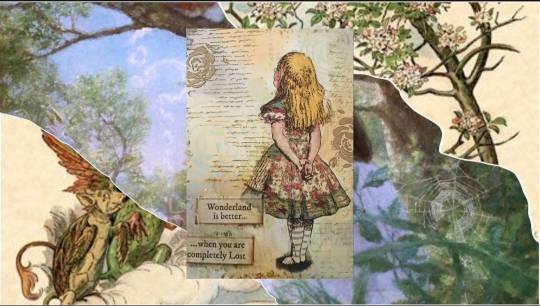
Synopsis:
When Alice sees a white rabbit take a watch out of its waistcoat pocket she decides to follow it, and a sequence of most unusual events is set in motion.
Goodreads
#‧₊˚❀༉‧₊˚. my diary ‧₊˚❀༉‧₊˚.#book recommendations#mori girl#mori kei#this post has been sitting on my drafts FOR AGES#since september to be exact#hope you enjoyed it and let me know if you want a part 2!!!!<333#dividers by gigittamic
61 notes
·
View notes
Text
Ranking all the Brontë novels + briefly reviewing The Professor
I finally finished The Professor by Charlotte Brontë, which means I HAVE COMPLETED ALL THE BRONTË NOVELS, which means I can now rank them. This is a rough order, but brief explanations will be given...
As an aside, bc I don't want to make a separate post for my review of The Professor, but I did note several strong similarities to Jane Eyre (the female lead's description, her elvish comparisons) and The Tenant of Wildfell Hall (Hunsden/Huntington as the cynic, although the former is mostly good and the latter mostly bad). Really all the Brontë novels are very similar so there are tons of more common themes I could mention but won't. Also, more references to Scottish besties Walter Scott & Lord Byron!
Now for my official Brontë Book Ranking (which may be subject to change over the years...)
7. Shirley - I would like to revisit this one. There are some great gems in it, and I'm fascinated by the Luddism subject matter. It is also a strong contender for the most feminist Brontë novel and has probably the most in-depth female relationships which does count for something. But it's SO UNNECESSARILY LONG! And often boring! And it took me the longest to finish. So it has to be last.
6. The Professor - this one benefits from not being Shirley. It's also a good attempt at a first novel I think. It has some gems, but it's often boring like Shirley is in my opinion. I thought the main male, Crimsworth, was a bit more exciting to follow than any of the men in Shirley. I actually think Crimsworth is a pretty inspiring figure and I enjoyed his observations and his anti-work rhetoric. Like most Brontë protagonists, he's a teacher who experiences classism, poverty, and oppression, and manages to overcome these things through frugality, faith, love, hope, etc.
5. Agnes Grey - it's hard to get through at times but it's generally worth it and has a strong pay off. I think Anne's writing style is generally enjoyable. It's has a lot of the horror of Wuthering Heights and the lighter parts of Jane Eyre but it lacks Charlotte and Emily's stronger passions and has more of Anne's calm reasoning, faith, and stoicism. That makes it sound more boring than it really is maybe. I also think it's fascinating for being largely semi-autobiographical like Charlotte's works can be. We get to "know" Anne more than we do in Tenant I feel, and I think she's pretty admirable. The bird scene was based on a real experience she had as a governess, and she wrote most of the novel as a rebellious act in her room right after work. All teachers and childcare workers – and really all women and members of the working-class – should take this novel as the cautionary tale it was written to be.
4. Villette - this is the weirdest Brontë novel. Some interesting scenes and characters. Charlotte's last novel shows far more writerly evolution than in Shirley where she was again trying for more progressive social commentary (and mostly succeeded I think) but often fell back into the more sedate or conventional nature that parts of The Professor has (saving Crimsworth's sometimes strong, sassy, rebellious attitude). Villette was written in a strange period of grief for Charlotte and it shows. Villette is basically Jane Eyre's weirder older sister.
3 and 2 are almost tied for me. I have also written about 3, 2, and 1 so much on my blog that I probably won't go into as much detail as I have with the others.
3. The Tenant of Wildfell Hall - shockingly underrated. Hard to get through, but so is Wuthering Heights which it's pretty similar to at times. Radically progressive and daring, it is a strong contender for being the most feminist Brontë novel and the most oriented toward social justice (although they really all are). Brilliant use of mystery and gothic allure with a social realism that was too ahead of its time to fall into the common traps of that genre. Has everything you could want in a Brontë novel.
2. Wuthering Heights - a bomb in your face. Full of passion. Grand drama. What can I say? It's infamous for valid reasons. Never a boring moment, which instantly pushes it to the top of the list for me who am easily bored. I have elaborated on this work very often on my page so I don't feel the need to reiterate everything here but I will say that this novel has basically everything you could want.
1. Jane Eyre - has all the gothic mystery and passion of Wuthering Heights but focuses on fewer characters whose arcs thus feel more personable and fulfilling in my opinion. We get to know Jane and Rochester much more fully than almost any of the other Brontë characters I feel. And it is my love for the characters that really makes this one my favorite Brontë novel as well as one of my favorite tales of all time (whereas Heights is notorious for its unlikeable characters which actually repel many readers from enjoying it). No wonder it's the most adapted and tied with Wuthering Heights for being the most famous (although I think it may have surpassed Wuthering Heights in pop culture at times). I also think there are a lot of really meaningful themes, morals, and subjects that are explored in this novel, which again can be said of all Brontë novels, but it all feels so much more full in this one. The plot itself is also the most well-crafted in my opinion, and it has one of the greatest twists in all of literature/media imo.
#the brontes#the brontë sisters#the brontës#charlotte brontë#emily brontë#anne brontë#jane eyre#wuthering heights#villette#shirley#the tenant of wildfell hall#agnes grey#the professor#books#book reviews#book rankings#literature#english literature#lit#victorian era#book blog#bookish#rankings#my writing#dark academia#book commentary
29 notes
·
View notes
Text
You Have My Attention: Anne of Green Gables First Lines
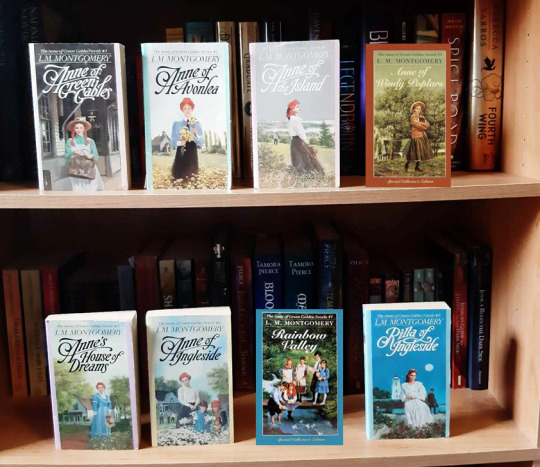
The icon of Canadian girlhood needs no introduction, as Anne of Green Gables is a global phenomenon at this point. What those of you who read the first book at like age ten and then didn't bother exploring further might not know, however, is that LM Montgomery wrote a whole Anne series. So how did she catch a reader's attention? Let's find out!
"Mrs. Rachel Lynde lived just where the Avonlea main road dipped down into a little hollow, fringed with alders and ladies’ eardrops and traversed by a brook that had its source away back in the woods of the old Cuthbert place; it was reputed to be an intricate, headlong brook in its earlier course through those woods, with dark secrets of pool and cascade; but by the time it reached Lynde’s Hollow it was a quiet, well-conducted little stream, for not even a brook could run past Mrs. Rachel Lynde’s door without due regard for decency and decorum; it probably was conscious that Mrs. Rachel was sitting at her window, keeping a sharp eye on everything that passed, from brooks and children up, and that if she noticed anything odd or out of place she would never rest until she had ferreted out the whys and wherefores thereof."
-- Anne of Green Gables
"A tall, slim girl, 'half-past sixteen,' with serious gray eyes and hair which her friends called auburn, had sat down on the broad red sandstone doorstep of a Prince Edward Island farmhouse one ripe afternoon in August, firmly resolved to construe so many lines of Virgil."
-- Anne of Avonlea
"'Harvest is ended and summer is gone,' quoted Anne Shirley, gazing across the shorn fields dreamily."
-- Anne of the Island
"(Letter from Anne Shirley, B.A., Principal of Summerside High School, to Gilbert Blythe, medical student at Redmond College, Kingsport.)
Windy Poplars,
Spook's Lane,
S'side, P. E. I.,
Monday, September 12th.
DEAREST:
Isn't that an address!"
-- Anne of the Windy Poplars
"'Thanks be, I’m done with geometry, learning or teaching it,' said Anne Shirley, a trifle vindictively, as she thumped a somewhat battered volume of Euclid into a big chest of books, banged the lid in triumph, and sat down upon it, looking at Diana Wright across the Green Gables garret, with gray eyes that were like a morning sky."
-- Anne's House of Dreams
"'How white the moonlight is tonight!' said Anne Blythe to herself, as she went up the walk of the Wright garden to Diana Wright's front door, where little cherry-blossom petals were coming down on the salty, breeze-stirred air."
-- Anne of Ingleside
"It was a clear, apple-green evening in May, and Four Winds Harbour was mirroring back the clouds of the golden west between its softly dark shores. The sea moaned eerily on the sand-bar, sorrowful even in spring, but a sly, jovial wind came piping down the red harbour road along which Miss Cornelia’s comfortable, matronly figure was making its way towards the village of Glen St. Mary."
-- Rainbow Valley
"It was a warm, golden-cloudy, lovable afternoon. In the big living-room at Ingleside Susan Baker sat down with a certain grim satisfaction hovering about her like an aura; it was four o'clock and Susan, who had been working incessantly since six that morning, felt that she had fairly earned an hour of repose and gossip."
-- Rilla of Ingleside
#lm montgomery#anne of green gables#anne of avonlea#anne of the island#anne of the windy poplars#anne's house of dreams#anne of ingleside#rainbow valley#rilla of ingleside#anne shirley#gilbert blythe#diana barry#marilla cuthbert#matthew cuthbert#rilla blythe#walter blythe#canadian literature#children's books#children's literature#girlhood#books and reading#books & libraries#books and novels#books#book recommendations
94 notes
·
View notes
Text
And each slow dusk a drawing-down of blinds

Walter had died a week ago and Gilbert didn’t want to go home. He sat at his desk and pretended to himself there was another prescription to write or that he’d told John Campbell to call round when he could, there might be something Gilbert could do for his bad hip, something he’d seen in a medical journal, the receipt for a liniment that truly was better than the salve old Mrs. Thelma Morrison stirred up of an evening, more efficacious and less likely to advertise his arrival with the rank scent of ramps crushed in tallow.
It was a lie.
There was no work yet to be done that would keep him, unless there was some queer version of mercy at play that would deliver a fisherman with a hook deep in his palm, calling for finesse and patience, the lamp lit against the dark.
It was quiet, the voices in the harbor hushed or still, and there was nothing more for him to do but admit the truth.
He simply didn’t want to go home.
It was not that the house would be empty, though that would be its own grief he knew. To go home to Ingleside and find no lamp lit against the dusk, no Anne on the sofa with a basket of mending and a book marked with a frayed scrap of ribbon, no Susan banging about in the kitchen, no Rilla dandling Jims on her knee, cheeks pink with a self-righteous spite as she complained about her Junior Reds, so much like her mother had been at the same age. The rooms all too big, the silence too loud.
And agony and yet, a surcease.
The house was full. Anne and her suffering, her grey eyes dark, her hair dressed very simply, beyond any attempt at vanity, drifted from the sitting room to their bedroom, aimless or beyond settling. Susan, cooking up whatever she thought might tempt one of them to take more than a few bites, catching herself about to mention Walter every third sentence, Miss Cornelia coming by with a basket of baked goods Gilbert would bring on his rounds to prevent wasting the food that no one in the house would eat. Rilla with her sisters, Nan and Di home from the college, all three reminding Gilbert of nothing more than a wilted nosegay, Nan and Rilla’s eyes reddened from weeping, Di’s lips bitten, chapped, her bright hair bundled back in an old-fashioned snood she’d have previously mocked in amused derision, the littlest Meredith girl sitting beside them, too thin, too pale. She’d been in love with Walter, that was clear now, and it was no longer charming or worth shaking his head over ruefully.
So many broken hearts. None he could fix.
Jem didn’t know yet, nor Shirley. He and Anne had agreed not to cable or write either of them. There was nothing they could do but grieve for their brother but that grief might be a distraction they could ill afford. The girls hadn’t argued as he’d expected and it was Rilla who’d spoken up, saying Let him be alive a little longer then while Nan crumpled up the letter she’d been writing to Jerry Meredith.
She would have been telling him about Walter. She wouldn’t risk him, nor the rare chance that he’d come across Shirley or Jem and mention Walter’s death. It was impossible to think Jerry would simply run into Jem in the trenches, except that stranger things had happened and Walter, his inquisitive little boy with his mother’s eyes, had been lost to them. His name on a telegram was all they’d get unless some officer in his battalion had the wherewithal to pack up his few remaining personal belongings and send them back to Ingleside on a ship that didn’t get sunk crossing the Atlantic.
Impossible.
Real.
His office was a place of relative respite. Walter had spent little time there, not interested in doctoring, not like Jem or Di, and so he couldn’t haunt it. There were charts to review and journals to leaf through, and no one came who wanted him to be anything else other than Doctor Blythe.
Not Dad. Not Gil dear.
His own parents, thank God, were dead. Marilla too and Mrs. Rachel.
The clock ticked. He’d have to leave soon enough.
The face that peered in through the door after the briefest, smartest rap, was not one he’d have ever expected.
“I was sent to fetch you, but we can go the long way back,” Mary Vance said. In the failing light of evening, her queer, pale eyes gleamed like the stones he’d liked to skip across Willowmere when he’d idled on the way home from Green Gables. There was a sturdiness to her shoulders and the set of her chin that had become reassuring to a man who now lived in a house of wraiths. She was twenty-three, just a year younger than Jem, a woman grown and not a girl, though she’d no pretense to vanity in her person or tone. Practical and imperturbable, she was one of the few people he could think of he needn’t take care of.
“Mrs. Blythe sent you?” he asked. He tried not to hope Anne had worried enough to speak of it.
“Mrs. Elliott,” Mary shrugged. She knew he would be disappointed, but she wouldn’t lie. “Said you’d soon be needing a doctor yourself if you missed your supper and she doesn’t think highly of Susan’s fish pie in any case.”
“Fish pie,” Gilbert repeated, getting up from his chair and reaching for his overcoat. He ought to be made of sterner stuff, the autumn only just beginning, but he’d been cold at the marrow since he’d learned of his son’s death.
“Mackerel. Had a good catch, down at the cove. I s’pose old Susan thought as long as it was pie, you’d like it,” Mary replied. She smiled, not coaxing but wry, suddenly reminded him of his mother. Neither was much given to effusiveness or cossetting.
“Susan’s not old and it’s not kind to say it,” Gilbert said.
“But it’s not too rude to hear it,” Mary countered. “She was born old, Miss Baker, and if you told her that, she’d be proud of it.”
He laughed then, a startled, almost choked sound he hadn’t known he was capable of, but she’d been so apt and so matter-of-fact…
“You’re quite observant, you’d make a good doctor,” he said.
“Maybe. Not for the likes of me, all that education. And I’m too blunt,” she replied.
“A nurse then,” Gilbert said.
“The War won’t last forever,” she said. “When it’s over, it won’t all be an agony. Sickbeds and wounds to be stitched. There’ll be other lives to live. Work to do. Dreams, for the ones who put stock in such things.”
“Not for everyone,” he said. His boy, gone away, his voice silenced. It hurt worse than little Joy, who’d never asked just one more question, Papa, at bedtime, before Jem had convinced him to call Gil Dad or Father, who’d never made him notice the dappled light of the woods or made him laugh calming Rilla down from her rage at being called Spider.
“No,” Mary said and Gilbert braced himself for the consolation. The balance. Walter died with honor. He’d had his poem read round the world. He’d made his peace with it.
It happened. People died young.
Ruby Gillis.
Kenneth West.
Captain Jim’s lost Margaret.
Walter Blythe.
“Mrs. Elliott will have my hide if I don’t get you back before she leaves and Marshall gets antsy left to his own devices,” Mary said. She pulled a very large, very clean white handkerchief from the pocket of her coat and handed it to him. “But we can still take the long way back. I’ll manage the driving.”
“Marigold needs a light hand,” Gilbert said.
“I’ll manage, Doctor Blythe. You needn’t worry about me,” Mary said. She gave him another sharp look. “I’ll take the hankie back before we’re at Ingleside. Mrs. Blythe and old Susan won’t be bothered. And Rilla’s war-baby said a half-dozen new words today, so they’re in decent spirits. It’s just the pie you’ve got to choke down.”
#aogg#anne of green gables#gilbert blythe#rilla of ingleside#walter blythe#grief#father and son#mary vance#not a lot of space left for Gilbert in canon#gilbert's love of pie#gilbert/anne#the blythe family#POV gilbert blythe#angst#comfort from unexpected places#aogg fanfic#anne x gilbert#2024 is the Year of Mary Vance it would seem
46 notes
·
View notes
Note
Hi Pauline, could you recommend books about female desire (fiction, non-fiction, what you will)?
I haven’t read much fiction in a hot second so brand new releases are totally out of my comfort zone, but off the top of my head, here are the ones that stuck with me; also not just fiction:
Angela Carter, The Bloody Chamber and The Night Circus Catherynne M. Valente, Deathless Maggie Nelson, The Art of Cruelty Emily Brontë, Wuthering Heights (obviously) Carson McCullers, The Heart is a Lonely Hunter Anne Carson, Plainwater Rebecca Seiferle, Wild Tongue Shirley Jackson, We Have Always Lived in the Castle and The Haunting of Hill House Sheridan LeFanu, Carmilla Helen Oyeyemi, White is for Witching Sylvia Townsend Warner, Lolly Willowes Ottessa Moshfegh, My Year of Rest and Relaxation (not particularly my cup of tea but very interesting for the topic) Carol Ann Duffy, The World’s Wife Sarah Waters, Fingersmith D. H. Lawrence, Lady Chatterley’s Lover Colette, Green Wheat Daphné du Maurier, Frenchman’s Creek and Rebecca E. M. Forster, A Room with a View Doireann Ní Ghríofa, A Ghost in the Throat William Shakespeare, Macbeth (also obviously) Christina Rossetti, Goblin Market Andal (trans. by Sarukkai Chabria), The Autobiography of a Goddess
And… I have to run but I hope those give you something to chew on already!
95 notes
·
View notes
Text
Tag game! Tag 9 people you want to get to know better (if you like)
Tagged by @ptork66. Thanks for the tag! 💖
3 ships: Kaz Brekker/Inej Ghafa, and i’m gonna say Lucy Carlisle/Anthony Lockwood (😞😭😭) and Mare Barrow/Maven Calore
First Ship Ever: idk probably Anne Shirley/Gilbert Blythe as I read the Anne of Green Gables series in 7 and 8th grade. But Kanej trumps all, so
Last Song: according to Spotify, The Alcott by The National ft. Taylor Swift
Last Movie: Shrek 2 but i didn’t finish it bc i was watching it with my brother and he had to go help our dad put up a door for my brother’s room, so we had to pause it… that was last Saturday…
Currently Reading: …. [runs away]
Currently Watching: The Great, season 3!!!!!
Currently Consuming: nothing at the moment, but i did just finish my merienda (a cup of coffee and sweet bread)
Currently Craving: clarity
tagging @lady-a-stuff @frolicking-grandma @totallynots8tan @bigalockwood @do-any-of-you-see-it @loopsbyelle @thegetawaywriter @kakiwrites @tfotaandstuff
145 notes
·
View notes
Text
Anne Shirley and the symbolism of pearls:
Pearls as a dream of a luxury:
"Now I’m going to imagine things into this room so that they’ll always stay imagined. [...] I am tall and regal, clad in a gown of trailing white lace, with a pearl cross on my breast and pearls in my hair.”
Anne of Green Gables
Pearls as a symbol of a sympathy and kindness:
"Ruby Gillis gave me an apple and Sophia Sloane lent me a lovely pink card with ‘May I see you home?’ on it. I’m to give it back to her tomorrow. And Tillie Boulter let me wear her bead ring all the afternoon."
Anne of Green Gables
Pearls as the most prized possession:
"I must do it. My honor is at stake,” said Anne solemnly. “I shall walk that ridgepole, Diana, or perish in the attempt. If I am killed you are to have my pearl bead ring.”
Anne of Green Gables
Pearls as a symbol of home:
“Well, I don’t want to be anyone but myself, even if I go uncomforted by diamonds all my life,” declared Anne. “I’m quite content to be Anne of Green Gables, with my string of pearl beads. I know Matthew gave me as much love with them as ever went with Madame the Pink Lady’s jewels.”
Anne of Green Gables
Pearls as a symbol of happiness:
“After all,” Anne had said to Marilla once, “I believe the nicest and sweetest days are not those on which anything very splendid or wonderful or exciting happens but just those that bring simple little pleasures, following one another softly, like pearls slipping off a string.”
Anne of Avonlea
Pearls as a symbol of love and marriage:
Anne’s engagement ring was a circlet of pearls. She had refused to wear a diamond.[...]
Pearls as a symbol of tears:
“But pearls are for tears, the old legend says,” Gilbert had objected.
Pearls as a symbol of joy and life:
“I’m not afraid of that. And tears can be happy as well as sad. My very happiest moments have been when I had tears in my eyes [...]. So give me pearls for our troth ring, Gilbert, and I’ll willingly accept the sorrow of life with its joy.”
Anne's House of Dreams
Pearls as a symbol of love and sacrifice:
"Jem, I never thought you supposed they were real pearls. I knew they weren't...at least in one sense of real. In another, they are the most real things I've ever had given me. Because there was love and work and self-sacrifice in them...and that makes them more precious to me than all the gems that divers have fished up from the sea for queens to wear."
Anne of Ingleside
22 notes
·
View notes